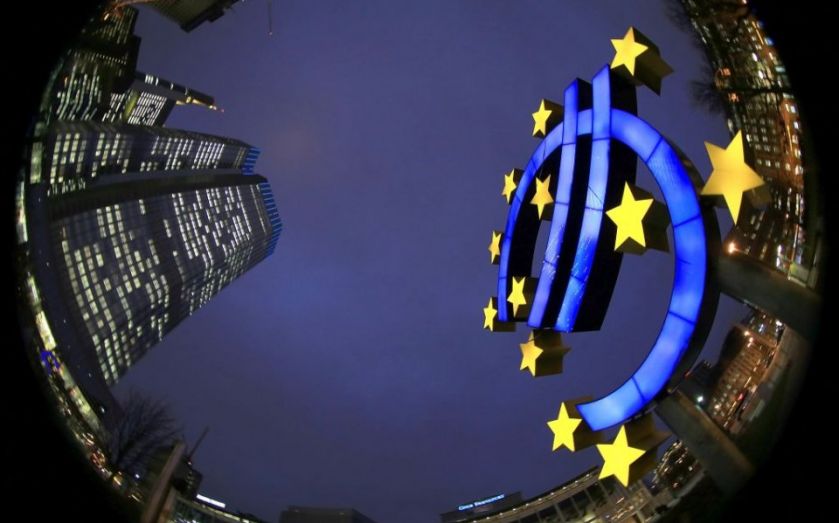All eyes are on Greece but rebounding inflation is Europe’s next big challenge

The markets are on edge and, as Mario Draghi conceded several weeks ago, there is not much the European Central Bank (ECB) can really do to help.
At the moment, all eyes are on Greece – a statement that could have been written on numerous occasions over the last five years. It’s “déjà vu all over again”, as we wait for another Greek compromise, another loan, and another way of extending and pretending that Greece’s debts are sustainable.
Will a Greek deal be reached in the coming weeks? We simply don’t know; but we will watch whether the Greek government implements capital controls, and whether the ECB makes its own contingencies for a Greek euro exit by limiting the emergency liquidity assistance (ELA) line and by increasing the haircuts applied to the collateral being posted by the Greek banks. If either were to happen, then it would signal a clear intensification of the crisis, leading to further pressure on the peripheral bond markets.
Almost exactly three years after Draghi intervened to steady the nerves with his game-changing “the euro is irreversible” comment, there is currently a very real prospect that the summer of 2015 will play out a lot like the summer of 2012. Is the euro truly irreversible? We are about to find out.
At the moment, our central case is that a compromise will be reached and that Greece will get the funds it needs to pay the IMF and the ECB (on 20 July). However, this will not mean that markets will enter calmer waters – anything but – as almost immediately attention will switch to what are likely to be the main themes for the second half of the year: a global spike in inflation and the countdown to the first rate hike in the US.
At the beginning of the year, all focus was on the potential risk of global deflation. Yet, less than six months on, these fears are likely to be replaced by anxieties over inflation, with the US, the euro area and the UK inflation rates all set to register higher readings in the coming months.
The global inflation story remains complex and, against a backdrop of strong growth (at least as far as the US and the UK are concerned), weak inflation had been a puzzle. A function of weak productivity and wage growth, with a variety of diverse contributory factors like the increased use of online shopping and an ageing labour force, for much of the last two years global inflation has disappointed expectations.
However, while the long-term outlook for inflation remains uncertain, in the near term the picture is coming into focus, with headline inflation rates set to rebound sharply over the next several quarters. What’s behind this turnaround? Primarily, this is a story about commodity prices: they were a drag on global inflation in late 2014 and in early 2015, but as this effect wears off, inflation is set to rise.
This is not unexpected, but if the Greek story is put to rest, against the backdrop of stronger US GDP growth in the second half of the year, growing evidence that the euro area economy is recovering, and a rise in global inflation expectations, the markets will look for the US Fed and the Bank of England to signal their intent to raise interest rates in the not too distant future. For the bond markets in particular, of course, this will be a crucial moment.
In addition to inevitable market volatility, it could also mark a dangerous point when the ECB risks losing control over domestic monetary policy in the euro area. So far, the ECB’s QE programme has generated mixed results from the market standpoint; but in the real economy, there is more confidence in the recovery than there has been for a number of years. Driven by a combination of a weaker currency, an expanding money supply, banks’ increased willingness to lend, and falling borrowing costs on existing loans to households and corporations, the euro area is in a position to outperform expectations.
But the outlook is entirely dependent on whether the ECB manages to anchor market and bank interest rates around the current low levels. Can the ECB succeed in an environment where global inflation is printing higher and the US Fed is raising rates? As the second half of the year approaches, Greece aside, this could become the single most critical challenge facing the euro area.